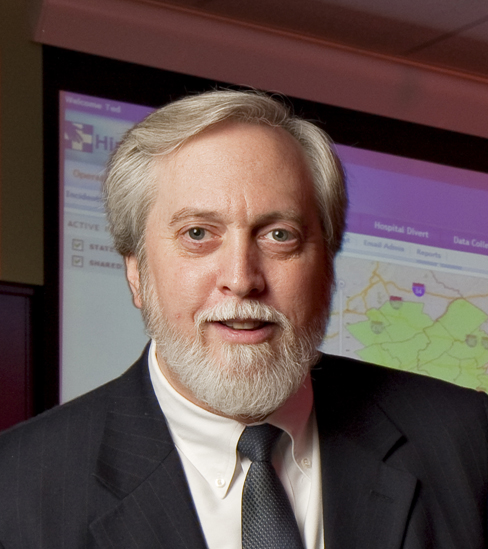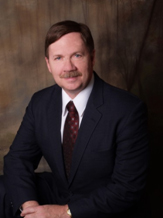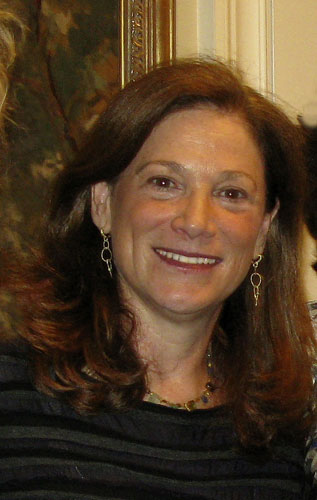VOICES NJ Resiliency Symposium | 2014 | Biographies

Clifton R. Lacy, M.D. is Director of the Institute for Emergency Preparedness and Homeland Security (IEPHS) at Rutgers, The State University of New Jersey. The Institute is a university-wide multidisciplinary center of excellence that combines the expertise and experience in research, education, community outreach, and practice from all statewide campuses of Rutgers University to address emergency preparedness, disaster response, public safety, and homeland security.
Dr. Lacy is also Director of the University Center for Disaster Preparedness and Emergency Response (UCDPER).
UCDPER is a collaborative initiative of Rutgers-The State University of New Jersey, Rutgers Robert Wood Johnson Medical School, and Robert Wood Johnson University Hospital that integrates the strengths and assets of the three institutions in a unique partnership to address all-hazards emergencies, disasters, and terrorism.
Dr. Lacy is immediate past President and Chief Executive Officer of Robert Wood Johnson University Hospital (RWJUH) and the Robert Wood Johnson Health System. Robert Wood Johnson University Hospital is a 965 bed tertiary and quaternary health care institution located in central New Jersey. It is the principal teaching hospital of Rutgers Robert Wood Johnson Medical School, and the core hospital of the Robert Wood Johnson Health System and Network.
Prior to that, Dr. Lacy served as Commissioner of the New Jersey Department of Health and Senior Services (NJ-DHSS), leading a department with a $3 billion budget responsible for public health protection and services, health planning and regulation, hospital financing, public health and environmental laboratory services, senior services, health care policy and research, minority and multicultural health, and health emergency and terrorism preparedness and response. In this role, he directed modernization of the department's emergency preparedness capabilities and the development and implementation of the health emergency and terrorism preparedness and response plan for the State of New Jersey (referenced in the 9-11 Commission Hearings).
Active at state and national levels in health emergency and disaster preparedness and response, Dr. Lacy serves as a member of the New Jersey Domestic Security Preparedness Task Force and its Infrastructure Advisory Committee and Public Sector Advisory Council, and Vice Chair of its Science and Technology Project Management Committee; a medical advisor to the New Jersey Department of Health and Senior Services and the New Jersey Office of Homeland Security and Preparedness; and Director of the New Jersey Office of the International Center for Terror Medicine at Robert Wood Johnson University Hospital, which is affiliated with Hadassah Medical Organization in Israel. He just completed his term as Health Scientist on the federal Department of Homeland Security-FEMA National Advisory Council and a member of its Preparedness and Protection Subcommittee and Interdisciplinary Collaboration Working Group. He also chaired the Advisory Board of the New Jersey Center for Public Health Preparedness at the University of Medicine and Dentistry of New Jersey (UMDNJ). He has provided testimony for the United States Congress on the state of national preparedness.
Dr. Lacy is Research Professor in the School of Engineering and Adjunct Professor in the Ernest Mario School of Pharmacy at Rutgers, The State University of New Jersey.
Dr. Lacy also served as Senior Vice President for Medical Affairs and Chief of Staff at Robert Wood Johnson University Hospital; and Associate Professor of Medicine and Chief of the Division of Cardiovascular Diseases and Hypertension and Director of the Center for Disease Management and Clinical Outcomes at UMDNJ-Robert Wood Johnson Medical School.
Dr. Lacy earned his medical degree from UMDNJ-Rutgers Medical School (later named UMDNJ-Robert Wood Johnson Medical School and now named Rutgers Robert Wood Johnson Medical School), where he also completed a residency in internal medicine, served as chief resident in internal medicine, and completed a fellowship in cardiovascular diseases.
Dr. Lacy is board certified in internal medicine and cardiovascular diseases. He has practiced the subspecialty of cardiovascular medicine for almost 30 years.
Dr. Lacy is a member of the Alpha Omega Alpha Medical Honor Society, a fellow of the American College of Cardiology, and a fellow of the American College of Physicians. He is a recipient of the Distinguished Alumnus Award from the University of Medicine and Dentistry of New Jersey and an inductee into the Rutgers University Hall of Distinguished Alumni. He has been listed as one of the Best Doctors in America, named to Modern Physician magazine's list of the nation's 50 most powerful physician-executives, and selected by Modern Healthcare magazine as one of the 100 most powerful people in healthcare.
He has served on national, regional, and local clinical and scientific committees and advisory boards including those of the U.S. Department of Homeland Security, National Institutes of Health, the American College of Cardiology, the American Heart Association, and the Association of State and Territorial Health Officers.

John L. Barry, Maj Gen, USAF (Ret) is the Chair of the Air Force Historical Foundation. General Barry served as Superintendent of Aurora Public Schools (APS), with 40,000 students, 60 schools, and a $500 million budget.
Barry is a 1973 Honor Graduate of the United States Air Force Academy, with a double major in International Affairs and Political Science and a Distinguished Graduate of USAF Pilot Training. He received his master’s degree in public administration from Oklahoma University, was a White House Fellow at NASA in 1986-1987, attended the Kennedy School of Government at Harvard on a fellowship in 1993-1994, and is a 2004 graduate of the Broad Superintendent Academy.

My job at the center is to serve as faculty in training workshops for mental heath practitioners who are interested in becoming complicated grief therapists. As a workshop presentator, I discuss the syndrome of complicated grief as well as techniques involved in the treatment. Additionally, I provide individual supervision to practitioners interested in learning CGT.
My training as a complicated grief therapist began in 2007 under the tuteledge of Dr. Katherine Shear. I approached my training with eagerness and confidence as I had been working as a research and clinical social worker at The New York State Psychiatric Institute for over two decades. To my surprise, acquiring the skills to become a complicated grief therapist involved more challenges than I expected. Among them was the emotional activation I found I was experiencing in confronting the deep pain of bereavement. The process of learning to understand and help people caught up in acute grief was evocative and complex. As I preserved, I was delighted and impressed to begin to see my patients effectively move from being stuck in complicated grief to engage in successful adaptation to the loss. As I joined my patients through this journey, I realized that I received many gifts as a therapist. Helping others with their pain has given my life a deep sense of meaning.
In addition to my work at the Center, I continue to work as a senior social worker at The New York State Psychiatric Institute as well as providing individual and family treatment in my private practice on the upper west side. I am also an adjunct professor at Columbia University School of Social Work where I teach a course in psychopathology.
